General DescriptionMouse complement is famously difficult to assay. Mouse serum rapidly loses its activity and the typical titer of mouse serum is far below the 150-200 CH50 units/mL found with human serum. Mouse strains differ greatly in their complement CH50 titers (Ref 1, 2 & 3) and a great many common mouse strains are genetically deficient in C5 (Ref 4 & 5) meaning that they cannot lyse cells even if they have an otherwise fully functional complement system. The exact reasons for low titers in C5 sufficient strains are not entirely clear and they may be different for different mouse strains. However, a common reason is that mouse classical pathway components are not efficiently activated by the standard antibodies bound to EA. At Complement Technology, Inc. we have developed a unique hemolytic reagent (MCAR = Mouse Complement Assay Reagent) that sensitizes sheep erythrocytes to provide improved mouse CH50 titers. For example, commercially available mouse complement exhibited a CH50 of only ~12 units/mL in the assay system described below, however, with MCAR present the CH50 was 217. That is 18-fold higher complement titer with MCAR. This is numerically comparable to normal human serum CH50, but the assays are different. At this time we cannot say how many mouse strains this reagent will work with, but we have used MCAR with three and it worked equally well with all.Mouse serum is also extremely unstable outside of the mouse. We have observed a rapid loss of activity after thawing (100% loss if left at 4℃ overnight). Thus, we advise rapidly thawing NMS and immediately using it in assays or if it is necessary aliquoting and freezing the NMS. It should be thawed rapidly in a water bath, moved immediately to wet ice when thawed, aliquoted and re-frozen as rapidly as possible. Upon use, thaw only when the experimental setup is ready for the NMS sample and keep it on wet ice after thawing.AssaysIn complement assays every lot of mouse complement will be have a different titer even from the same strain of mice. Preliminary assays will need to be done to determine the correct amount of NMS to use. Normal sensitized sheep cells (EA) work well if the lysis is boosted by MCAR. Most NMS samples generally contain a lot of hemoglobin and therefore the more serum used the higher the background. A sample assay protocol is shown in the table below where the total assay volume was kept to a minimum at 100 uL/assay. In general, tubes should be set up with buffers and MCAR atroom temperature. Then EA are added, mixed and incubated 5 min at room temperature. After MCAR has incubated with the EA cells for 5 min or more at room temp the NMS is added to start the assay. The tubes should be mixed and moved to a 37℃ water bath for 30 min with occasional (every 5-10 min) resuspension by vortexing.One word of caution, do not centrifuge the EA after they have been mixed with MCAR and do not make a master mix of EA and MCAR and then pipette into the tubes. These procedures will result in inconsistent results.After 30 min at 37℃, the assays are diluted with 200 uL cold GVBE, mixed by vortexing, centrifuged to pellet the unlysed cells and 200 uL of the supernatant should be transferred to a flat-bottomed microplate and the absorbance read at 415 nm. Alternatively a microcuvette and spectrophotometer may be used.
EA are used at 5 x 108/ml in GVB++ and all dilutions are done in GVB++ buffer.% Lysis is calculated by subtracting the background A415 values (average of #1 and 2) from the A415 vales for each of the experimental assays (e.g. #7-22) and dividing by the maximum lysis (average of #5 and 6) minus background and then multiplying by 100. Specifications and Purity: > 0.4 mg/mL,0.025% sodium azide. Related Document: https://ald-pub-files.oss-cn-shanghai.aliyuncs.com/aladdinsci/pdp/sds/1/M501439-SCI_c96472b05f3a6d273a30ef6531262e74.pdf.
- UPC:
- 12352202
- Condition:
- New
- Availability:
- 8-12 weeks
- Weight:
- 10.93 Ounces
- HazmatClass:
- No
- WeightUOM:
- LB
- MPN:
- M501439-1ml
- Product Size:
- 1ml















